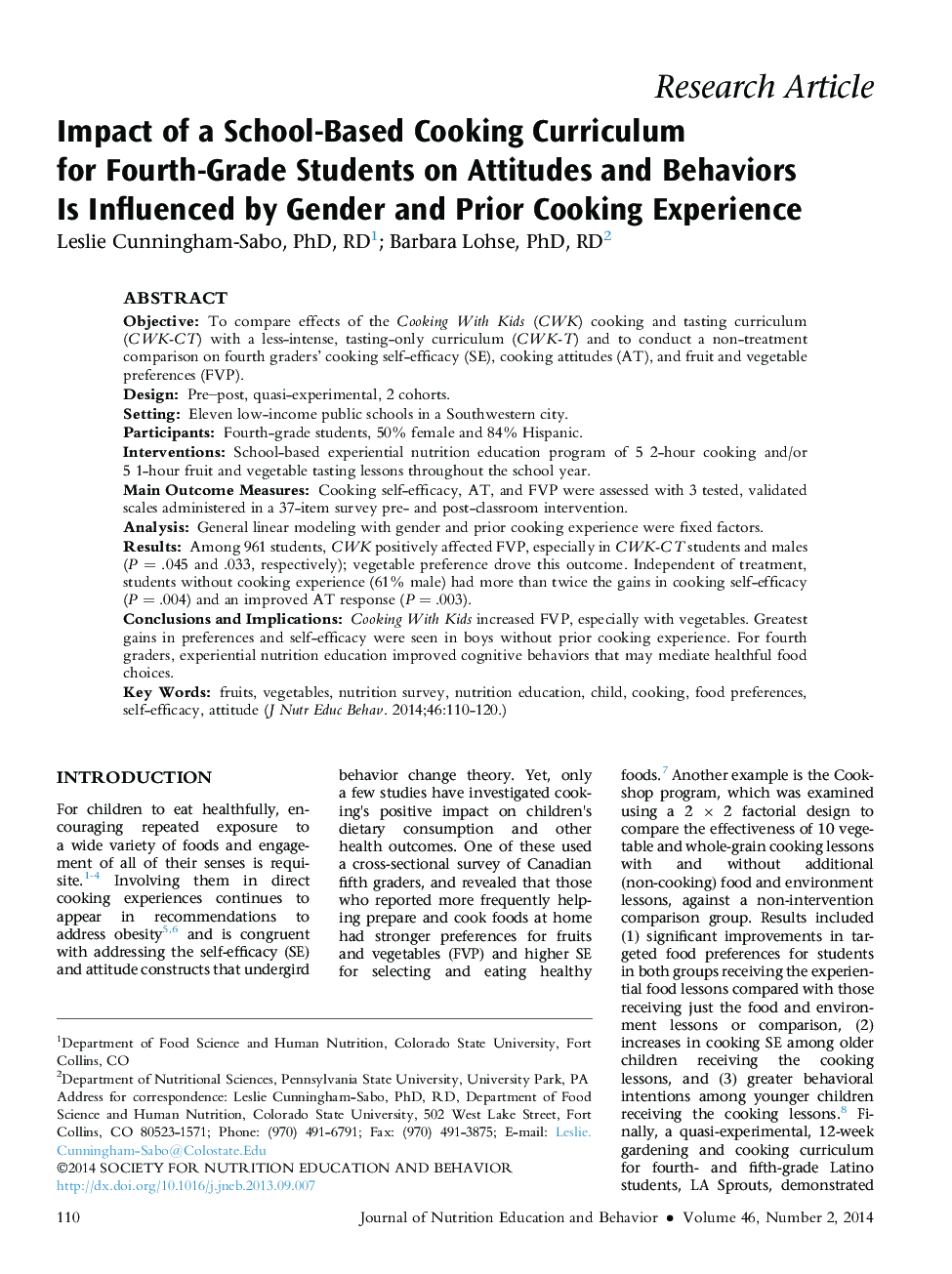| Article ID | Journal | Published Year | Pages | File Type |
|---|---|---|---|---|
| 361197 | Journal of Nutrition Education and Behavior | 2014 | 11 Pages |
ObjectiveTo compare effects of the Cooking With Kids (CWK) cooking and tasting curriculum (CWK-CT) with a less-intense, tasting-only curriculum (CWK-T) and to conduct a non-treatment comparison on fourth graders' cooking self-efficacy (SE), cooking attitudes (AT), and fruit and vegetable preferences (FVP).DesignPre–post, quasi-experimental, 2 cohorts.SettingEleven low-income public schools in a Southwestern city.ParticipantsFourth-grade students, 50% female and 84% Hispanic.InterventionsSchool-based experiential nutrition education program of 5 2-hour cooking and/or 5 1-hour fruit and vegetable tasting lessons throughout the school year.Main Outcome MeasuresCooking self-efficacy, AT, and FVP were assessed with 3 tested, validated scales administered in a 37-item survey pre- and post-classroom intervention.AnalysisGeneral linear modeling with gender and prior cooking experience were fixed factors.ResultsAmong 961 students, CWK positively affected FVP, especially in CWK-CT students and males (P = .045 and .033, respectively); vegetable preference drove this outcome. Independent of treatment, students without cooking experience (61% male) had more than twice the gains in cooking self-efficacy (P = .004) and an improved AT response (P = .003).Conclusions and ImplicationsCooking With Kids increased FVP, especially with vegetables. Greatest gains in preferences and self-efficacy were seen in boys without prior cooking experience. For fourth graders, experiential nutrition education improved cognitive behaviors that may mediate healthful food choices.
